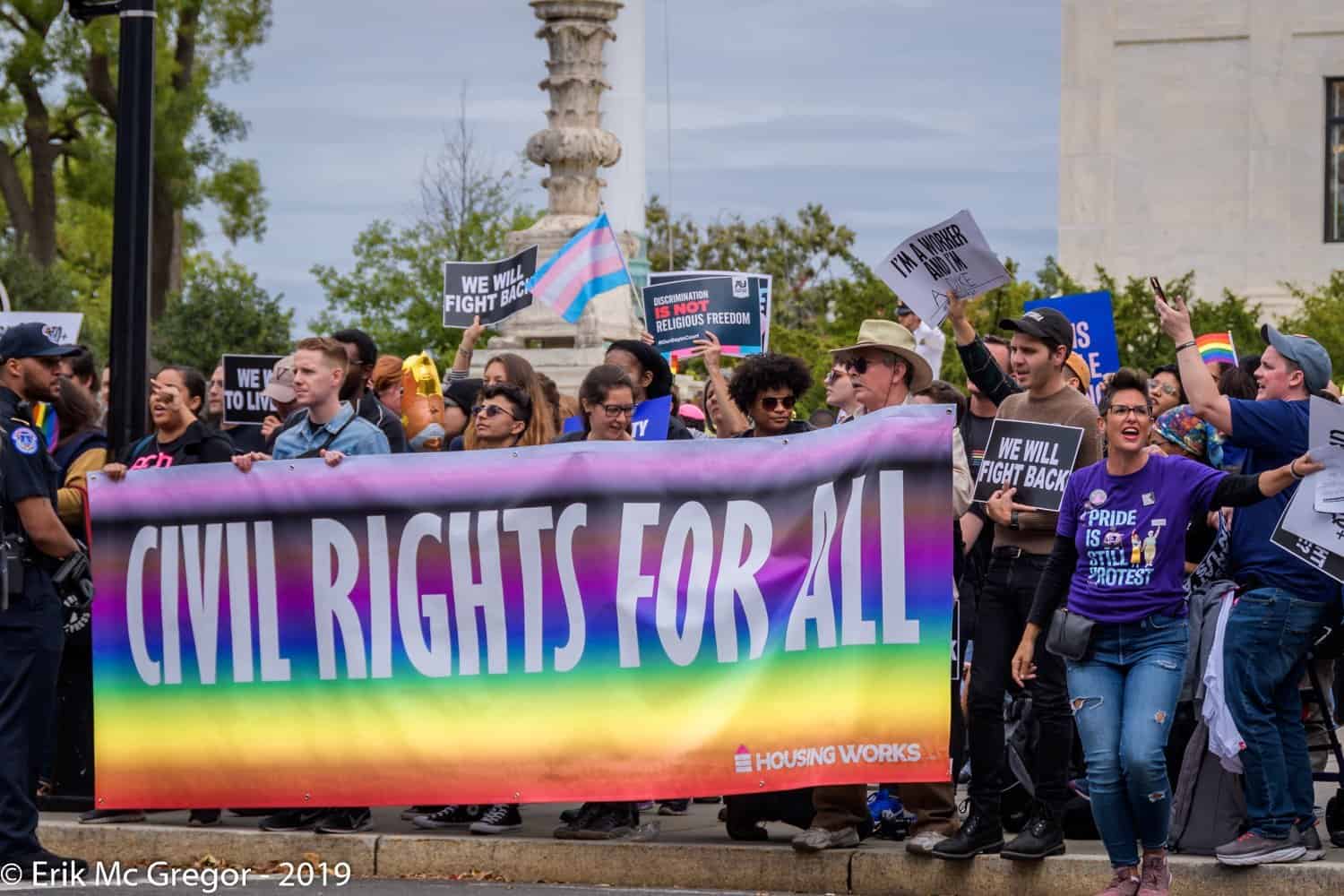
Andrew Strom is a union lawyer based in New York City. He is also an adjunct professor at Brooklyn Law School.
During the oral arguments in Bostock v. Clayton County and R&G and G&R Harris Funeral Homes v. EEOC, Justices Alito and Gorsuch gave credence to the contention that the Court would be acting as a legislative body if it ruled that discrimination based on sexual orientation or gender identity is a form of sex discrimination. This argument is not a legitimate basis for ruling against the individuals in these cases.
Gerald Bostock, the heirs of Donald Zarda, and Aimee Stephens are simply asking the Court to interpret a statute. As Pamela Karlan, who argued the case for Bostock and Zarda, explained, their argument is simple: if an employer fires a male employee for dating men but does not fire female employees who date men, the employer has discriminated against the man on the basis of sex. Aimee Stephens, a transgender woman, makes several arguments as to why discrimination against her is a form of sex discrimination. To me, her most compelling argument is that the Court has already decided that an employer may not fire a person for failing to conform to gender stereotypes. If an employer can’t fire a man for being too effeminate or fire a woman for being too masculine, it’s hard to see why an employer should be allowed to fire someone who was assigned male at birth but now identifies as a woman.
Everyone concedes that when Congress enacted Title VII of the Civil Rights Act in 1964 and made it illegal for employers to discriminate on the basis of sex, Congress wasn’t thinking about discrimination against LGBTQ individuals. But, it’s not unusual for the Court to apply a statute to circumstances that Congress didn’t have in mind when it passed a particular statute. For instance, in 2007, the Court held that the authority granted to the Environmental Protection Agency to regulate “air pollution” by the 1970 Clean Air Act authorized the EPA to regulate carbon dioxide emissions even though Congress was not focused on climate change in 1970. Briefs submitted in Bostock and Harris pointed out that courts have long applied Title VII to forms of discrimination that Congress did not have in mind when it passed the statute. For instance, the AFL-CIO observed that when Title VII was passed, interracial marriage was still illegal in at least 16 states and there is no indication that Congress intended to prevent employers from refusing to employ white employees who were married to African-Americans in those states. Yet, once the Supreme Court held that laws barring interracial marriage were unconstitutional, courts concluded that Title VII did forbid employers from discriminating against individuals based on the race of their spouse.
But, instead of acknowledging that courts routinely apply statutes to circumstances not foreseen when Congress enacted a particular statute, Justice Alito asserted that “some people will say” that “if the Court … interprets this 1964 statute to prohibit discrimination based on sexual orientation, we will be acting exactly like a legislature.” Justice Gorsuch similarly asked Aimee Stephens’ lawyer to respond to the argument that a ruling that Title VII applies to transgender discrimination is “an essentially legislative decision.”
If the Court rules that Title VII’s ban on sex discrimination applies to discrimination based on sexual orientation or transgender status, it would not be stepping on Congress’s toes because Congress would still be free to revise Title VII, either to address the issues about religious exemptions and bathrooms that are not raised in these cases, or even to eliminate protections for LGBTQ individuals. Justices Alito and Gorsuch are, of course, free to rule against Bostock, Zarda, and Stephens, but if they do so, they shouldn’t hide behind a claim that they are concerned about the Court encroaching on legislative authority. After all, in King v. Burwell, Justice Alito joined a dissent that would have gutted the Affordable Care Act. That dissent resulted in a rebuke from Chief Justice Roberts, who warned that “in every case we must respect the role of the Legislature and take care not to undo what it has done.”
The Court should interpret the statute in these cases, and let the chips fall where they may. If Congress disagrees with the Court’s ruling, it will be free to amend the statute.






Daily News & Commentary
Start your day with our roundup of the latest labor developments. See all
February 16
BLS releases jobs data; ILO hosts conference on child labor.
February 15
The Office of Personnel Management directs federal agencies to terminate their collective bargaining agreements, and Indian farmworkers engage in a one-day strike to protest a trade deal with the United States.
February 13
Sex workers in Nevada fight to become the nation’s first to unionize; industry groups push NLRB to establish a more business-friendly test for independent contractor status; and UFCW launches an anti-AI price setting in grocery store campaign.
February 12
Teamsters sue UPS over buyout program; flight attendants and pilots call for leadership change at American Airlines; and Argentina considers major labor reforms despite forceful opposition.
February 11
Hollywood begins negotiations for a new labor agreement with writers and actors; the EEOC launches an investigation into Nike’s DEI programs and potential discrimination against white workers; and Mayor Mamdani circulates a memo regarding the city’s Economic Development Corporation.
February 10
San Francisco teachers walk out; NLRB reverses course on SpaceX; NYC nurses secure tentative agreements.